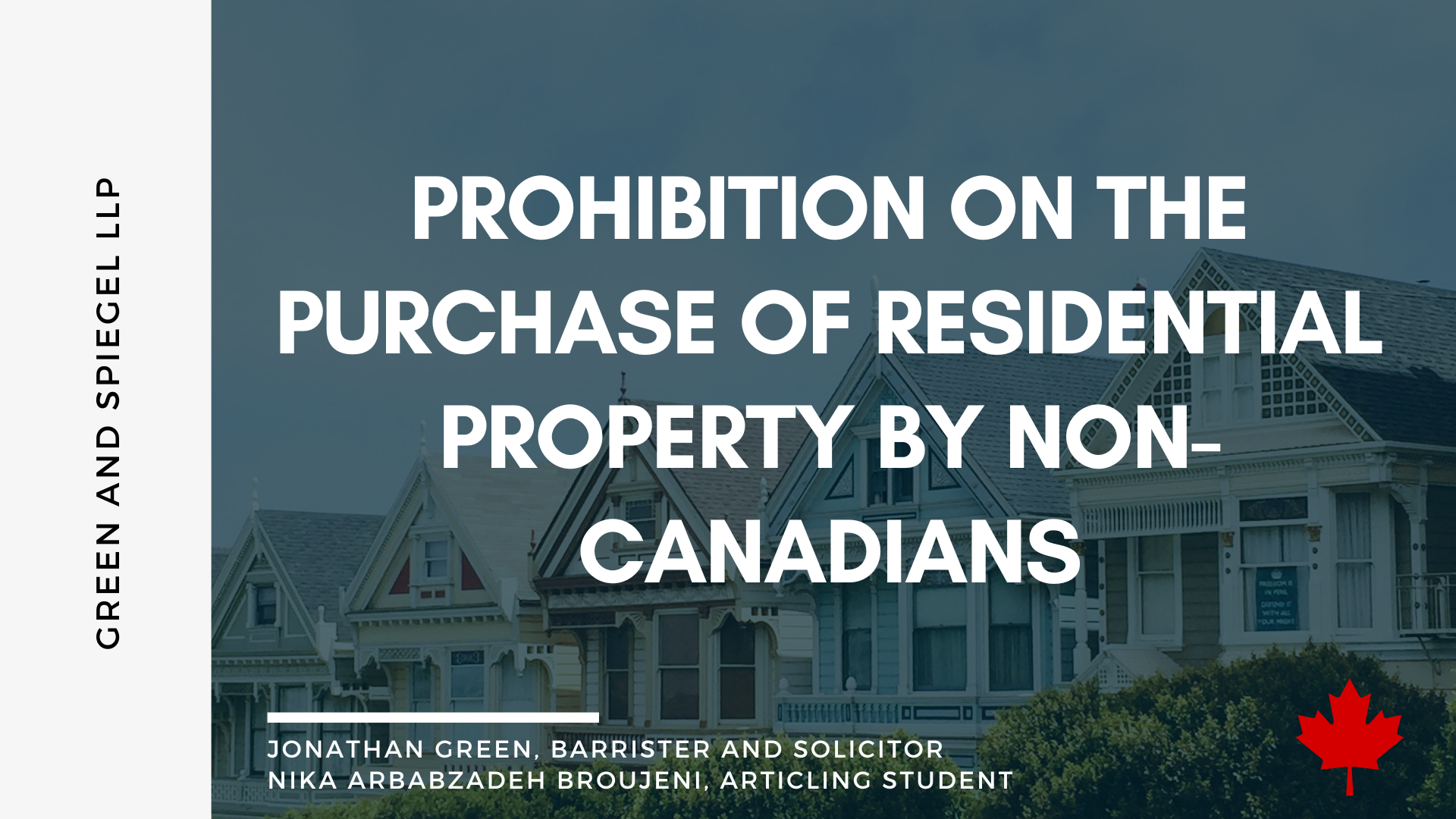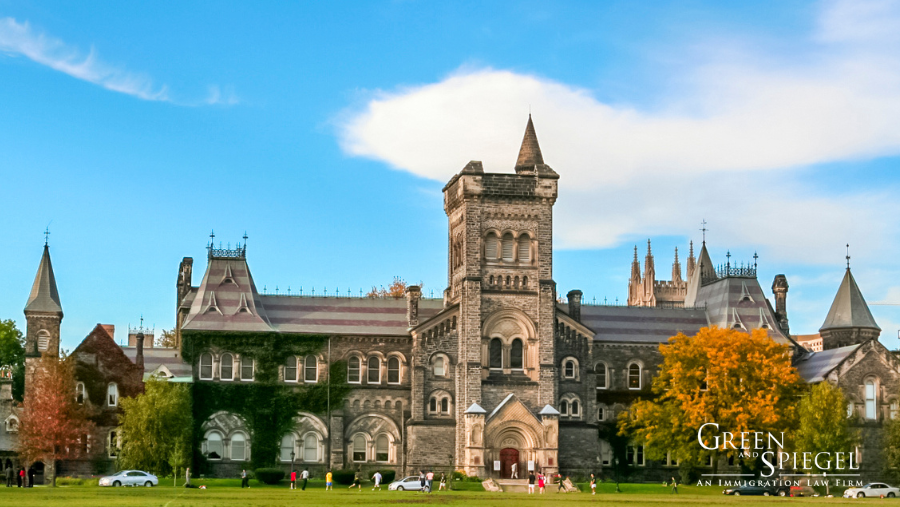
The Prohibition on the Purchase of Residential Property by Non-Canadians Act(the “Act”) came into effect on January 1, 2023. As a result of this ban, many non-Canadians have been prohibited from purchasing residential property in Canada, creating concerns for them as they look to Canada for work or study opportunities. This ban on the purchase of residential property by non-Canadians is meant to be temporary, lasting two years, and is intended to respond to Canadians’ urgent concerns about housing affordability. It is reported that approximately between two and six percent of residential properties have at least one non-resident owner.
The Act defines non-Canadian as:
- an individual who is neither a Canadian citizen nor a person registered as an Indian under the Indian Act nor a permanent resident;
- a corporation that is incorporated otherwise than under the laws of Canada or a province;
- a corporation incorporated under the laws of Canada or a province whose shares are not listed on a stock exchange in Canada for which a designation under section 262 of the Income Tax Act is in effect and that is controlled by a person referred to in paragraph (a) or (b); and
- a prescribed person or entity.
In addition, under the Act, Residential Property is defined as a detached house or similar building, containing not more than three dwelling units.
There are several exceptions to the prohibition under this Act and the following categories of non-Canadians may still be able to purchase residential property in Canada, which mostly target non-Canadians who have lived in Canada for multiple years prior to purchasing property:
- International Students
- Must be enrolled in a program of authorized study at a designated learning institution;
- Must have filed all required income tax returns under the Income Tax Act for each of the five taxation years preceding the year in which the purchase was made;
- Must have been physically present in Canada for a minimum of 244 days in each of the five calendar years preceding the year in which the purchase was made;
- Purchase price of the residential property must not exceed $500,000; and
- The student must not have purchased more than one residential property.
- Work permit holders
- Must have worked in Canada for a minimum period of three years within the four years preceding the year in which the purchase was made, if the work is full-time work;
- Must have filed all required income tax returns under the Income Tax Act for a minimum of three of the four taxation years preceding the year in which the purchase was made; and
- Must not have purchased more than one residential property.
- Eligible refugee claimants
Importantly, the Act makes it an offence for non-Canadians to purchase property in Canada and for others, or attempt to, counsel, induce, aid, or abet a non-Canadian to purchase residential property. Any person who commits such an offence will be liable on summary conviction to a fine of not more than $10,000.
To learn more about your eligibility to purchase residential property, please contact us for a consultation.






